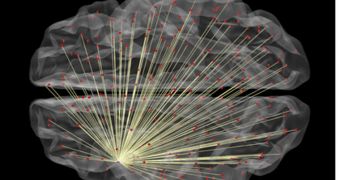Working with funds from the US National Institute of Mental Health (NIMH), a team of investigators from the Washington University in St. Louis (WUSL) has recently determined that brain imaging can be used to measure intelligence, at least up to a certain point.
Scientists have long since been puzzled by what they call individual variation in intelligence. The concept refers to the differences that exist between the brains of exceptional and average individuals.
Determining what factors influence a person's intelligence has been a long-standing goal in science. If data revealing this mystery could be obtained, then this may open the way for the development of therapies for boosting overall intelligence.
Experts suspected that the overall size of the brain matters to some degree. This was proven to be true, but this value actually only accounts for about 6.7 percent of variance in intelligence. Another 5 percent are accounted for by the prefrontal cortex.
This is a region of the brain located immediately behind the forehead. It plays a critical role in high-level mental processing, and activity levels in the area were found to influence overall intelligence.
What WUSL investigators have demonstrated in the new study is that the strength of neural pathways connecting the left prefrontal cortex to the rest of the brain (the Global Brain Connectivity) accounts for around 10 percent of the individual variation in intelligence.
The discovery could set the foundation for a new approach to understanding human intelligence, the research group explains in a paper published in the esteemed Journal of Neuroscience.
“Our research shows that connectivity with a particular part of the prefrontal cortex can predict how intelligent someone is,” WUSL postdoctoral research fellow in cognitive neuroscience and lead study author, Michael W. Cole, PhD, explains.
“This study suggests that part of what it means to be intelligent is having a prefrontal cortex that does its job well; and part of what that means is that it can effectively communicate with the rest of the brain,” adds professor of psychology Todd Braver, PhD, a coauthor of the new study.
The research team also included collaborators from the University of Colorado in Boulder, the University of Ljubljana, in Slovenia, and the Yale University School of Medicine.

 14 DAY TRIAL //
14 DAY TRIAL //